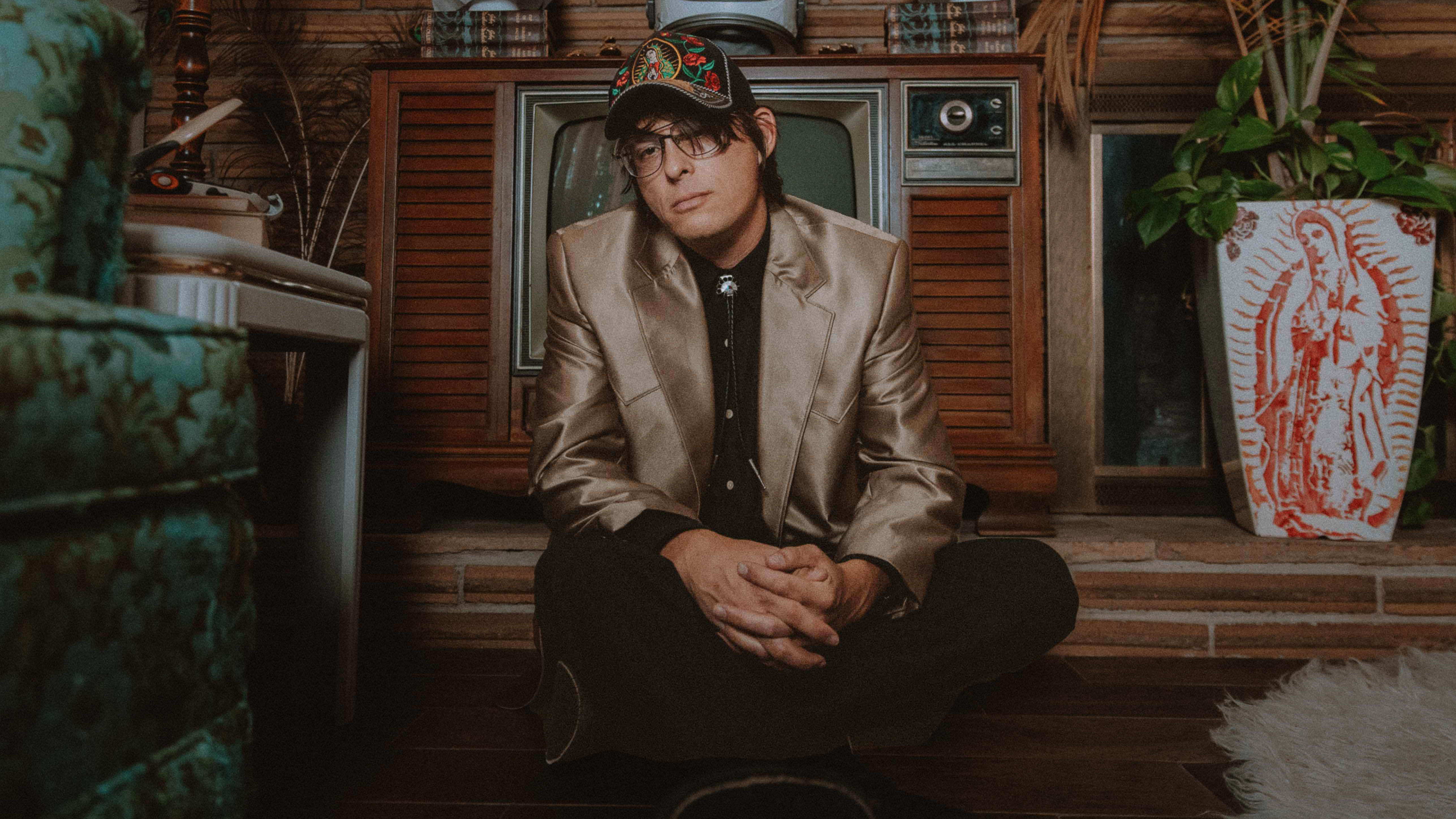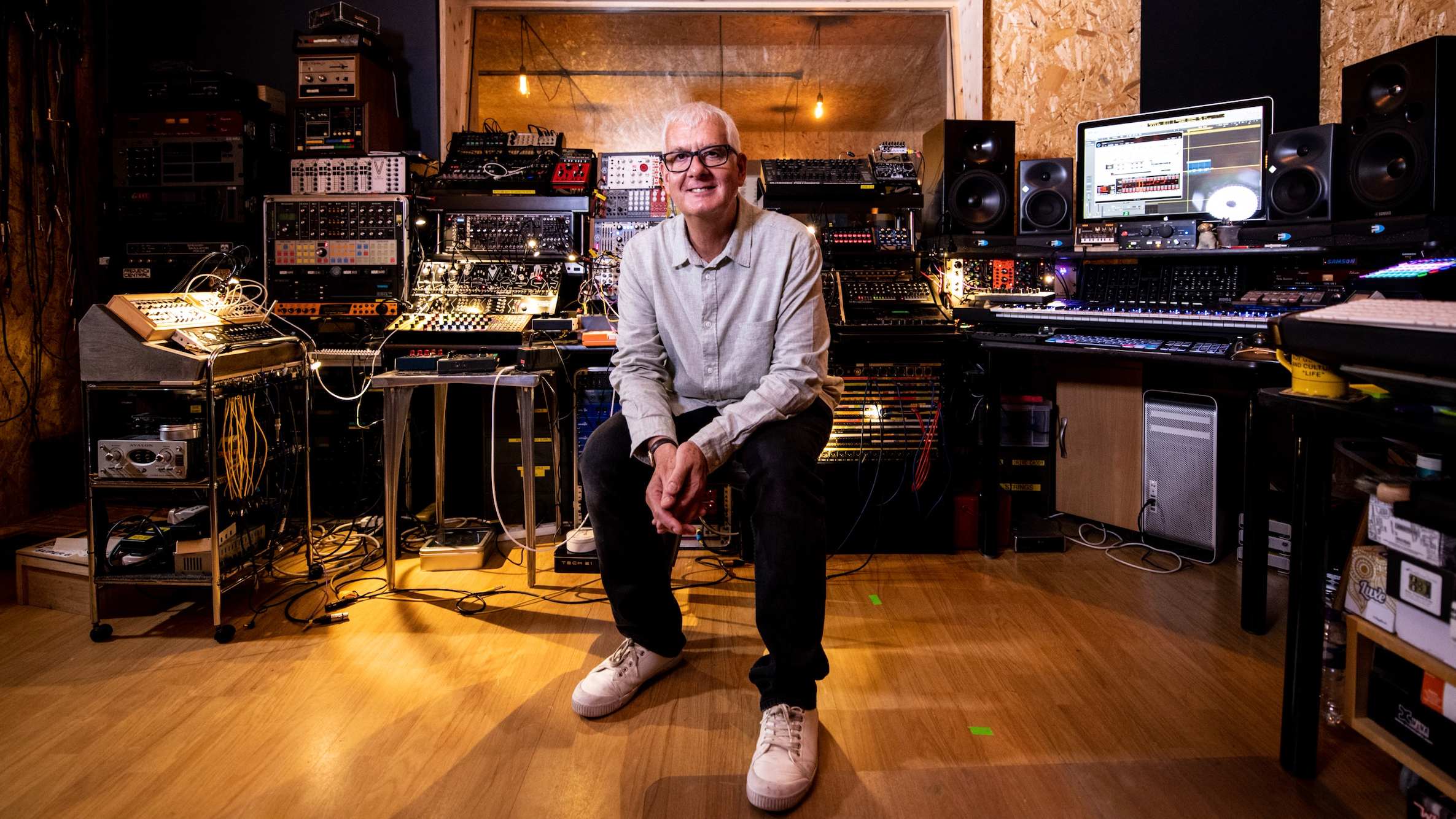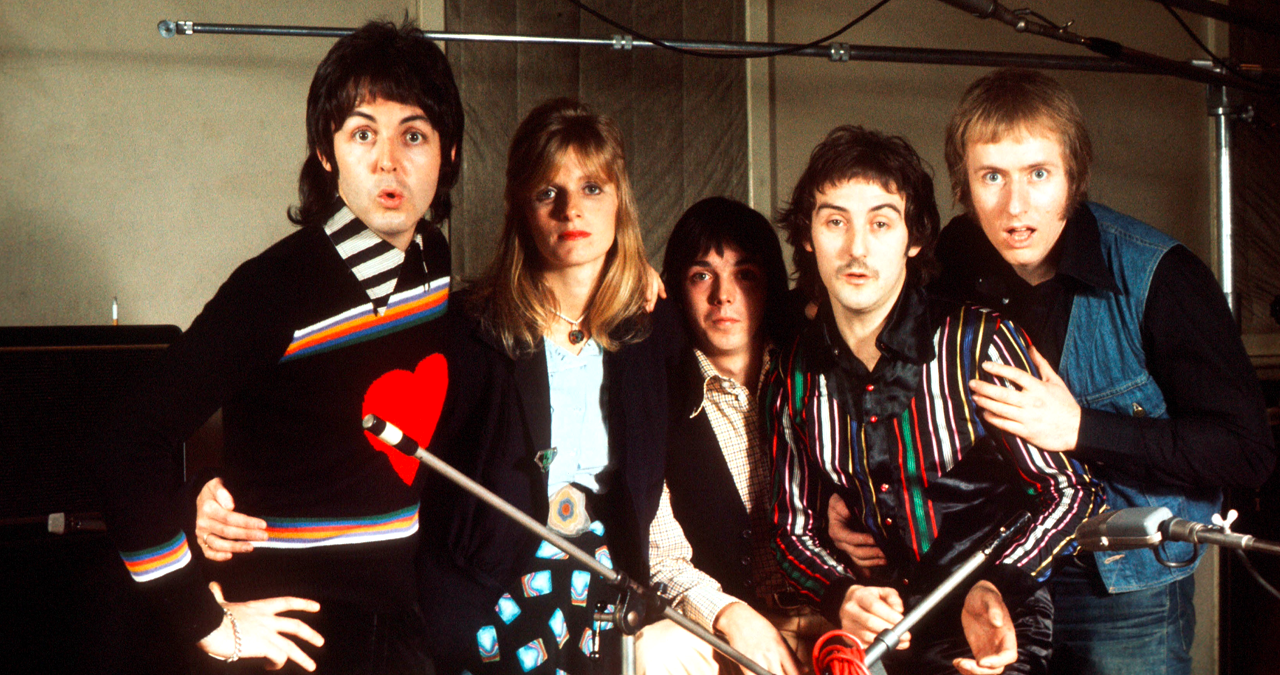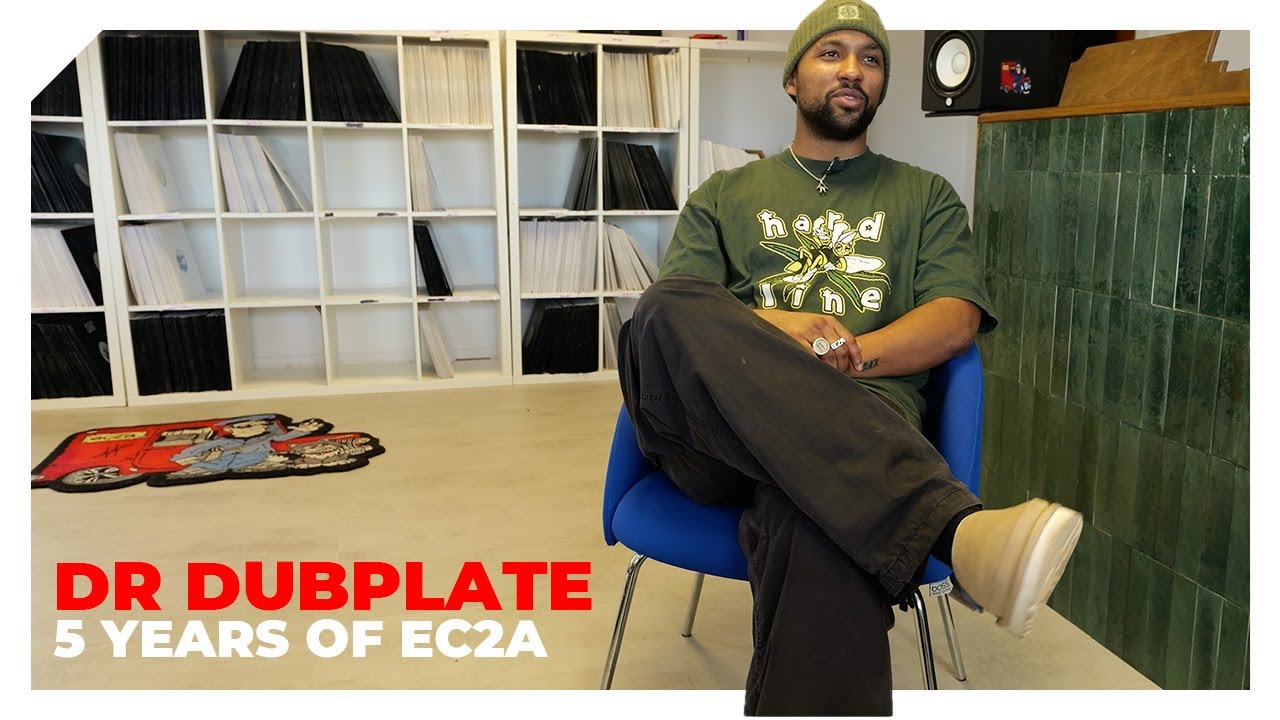“When I quit my job as a scientist to be a songwriter, I was waiting tables and bartending and needing to write songs for a living”: The art of songwriting with rising country star Stephen Wilson Jr
"The bus driver only played country music, so that was three hours a day, five days a week, listening to country music. I called it emersion"

As Stephen Wilson Jr’s music has become increasingly better known, so has the Year To Be Young 1994 singer’s backstory. Raised with his brother by his father, it was boxing that dominated the young Wilson’s early life.
Much has been made of this upbringing, especially in light of his father’s passing and the outpouring of emotion that is his 2023 album Son Of Dad, but there was plenty of time for music back then as well.
“Subconsciously music was a big part of my childhood,” Wilson tells MusicRadar ahead of his UK/EU tour this month (October 2024). “No one in my family was singing, or was musical, but music surrounded us. And country music in particular.
I heard a song by Tim McGraw called Don’t Take The Girl and it made a mess of me real quick
“I used to have a 90-minute bus journey to and from school every day. We lived out in the country and we were the first on and last off that bus every day. The driver only played country music, so that was three hours a day, five days a week, listening to country music. I called it emersion.
“At the same time my grandparents revered the Grand Ol’ Opry, it was like a church to them, so they would play George Jones, Jonny Cash, Hank Sr… when I played the Opry for the first time it was a huge deal for me.”
Interestingly, Wilson can pinpoint the exact moment his interest in music took on a life of its own and became something more than the background to his life. And sure enough, it happened on that school bus.
“I heard a song by Tim McGraw called Don’t Take The Girl and it made a mess of me real quick,” recalls Wilson. “It was in that moment that I realised music is not just a soundtrack. It’s not just beats and sounds and words that rhyme, it’s this spirit that lives within the songs.
Get the MusicRadar Newsletter
Want all the hottest music and gear news, reviews, deals, features and more, direct to your inbox? Sign up here.
“I got ‘songbit’ hearing that song on the school bus and it lead me here because I’ve been chasing that mystery ever since.”
Anyone familiar with the song will know just why it left young Wilson reeling, delivering an ambiguous and heartbreaking denouement that isn’t apparent in advance. “In boxing we have a saying,” Wilson tells us, “that the punch that knocks you out is the one you don’t see coming. That song is a classic case of that.
Once grunge happened, the rest was history. I learned to play guitar around 16 years old, and I got a Soundgarden tablature book from a friend who had got it for Christmas
“Larry Johnson and Craig Martin wrote that song, and I wasn’t just hearing it being sung, I was hearing the very essence of the song. That’s where it all began for me. I never dreamed I’d be a singer or an artist, I just wanted to capture the alchemy that is the song, because when I heard that song I heard the spirit of that song and why it was created.”
Wilson’s musical journey was not a linear one, however, from hearing Tim McGraw to getting featured on country radio. Not long after that transcendent encounter on the school bus, Wilson’s attention switched from Nashville to Seattle. It’s a journey he acknowledges, and that can still be traced in his music today.
“Once grunge happened, the rest was history,” recalls Wilson. “I learned to play guitar around 16 years old, and I got a Soundgarden tablature book from a friend who had got it for Christmas but could barely play a D chord. I got really into the innovation of that band early on, because they were doing something unique. Once I got into that music, and indie-rock, it was game over for me.”
But the man from southern Indiana doesn’t pretend to be a grunge musician today, despite a spell in an indie-rock band and the fact the variety of influences on his music make him hard to pigeonhole.
“There seems to be a lot of discussion over whether I’m a country artist, or a country singer,” he says, “but what I will say is that I’m a country songwriter. I write country songs. What people want to call them after that, I’ll let them fight over it.”
Not that country songs, despite Wilson’s schooling in the genre, necessarily came easily at first, with his route to success surprisingly taking him back to Seattle.
“Soundgarden taught me that I could tune my guitar differently,” he recalls. “I didn’t know you could tune it to anything but EADGBE at the time, and learning that you can turns the guitar into a whole different instrument. All your chord vocabulary, all your scale patterns, your modes, everything you’ve learned… it’s all out the window. You’re starting over, it gives your instrument a different colour and allows you to do something entirely different.

“That’s been crucial for me,” continues Wilson, “because when I learned all the Soundgarden stuff I learned it early, long before most people do. Then I got into modal jazz and really nerdy guitar playing, but all in standard tuning, and I played classical, got really into learning modes, scales, jazz chords, every chord going. I played in big band jazz, symphonic bands, any eclectic music I could play, and I became a guitar nerd. Perhaps to my detriment.
“When I quit my job as a scientist to be a songwriter, I was waiting tables and bartending and needing to write songs for a living. So I’m trying to write songs that are compelling, but I keep picking up my guitar and doing this noodly shit with it. And as a result I’m writing these garbage songs, where the guitar is always leading the song.
After all these years of learning it and perfecting it, the guitar had become a problem and was now getting in my way
"After all these years of learning it and perfecting it, the guitar had become a problem and was now getting in my way.
“I was searching for a way to fix this problem, and so I went back to where it all began and just retuned my guitar – like I did with Soundgarden. I needed to unlearn the instrument, and I did that just by tuning it differently. Now all those scales, all those chords, are garbage. And that’s when the songs started showing up.”
Some 22 of those songs appear on Son Of Dad, a very personal record that nonetheless explores universal themes of love, grief, faith and survival.
“I’m glad we still call them records,” says Wilson, “because Son of Dad is more of a record than an album. It was me keeping a record, like a scientist, of the experience of my father dying. Much more so than me making an album.
“From the beginning of my life I’ve been prepared for armageddon,” explains Wilson. “Since I was a little kid people were asking me if I was ready for the end of the world next week, but at the same time those same people were asking me what I wanted to be when I grew up. Which sounded like a trick question.
“So the record starts with The Devil, and being terrified, and ends with The Beginning, and being terrified. They bookend the experience and I’m now in the process of keeping a record of what’s happening now. Because now is a totally different experience and I have to just continue the conversation: I can’t recreate it.”
One of the centrepieces of the album is a song called Grief Is Only Love. Wilson has said previously that if we are lucky enough to live on this earth then we will experience grief. Many doing so could find solace in a song that connects us with those who have gone before and calls on us to face up to our feelings, rather than run or hide from them.
“That song showed up as I was writing with a songwriter called Jeffrey Steele,” recalls Wilson. “I was waiting for him on the front porch, and I swear the whole chorus for Grief Is Only Love appeared on that porch. I literally got my guitar out of the case and started writing.
“I don’t know why it showed up that day in that place, but I do know that when my dad died Jeffrey was the first person to reach out to me. The moment it happened he was right there, like an angel. He had lost his 13-year-old son 10 years ago, and obviously it destroyed him. He’s experienced grief on a level no one should have to, losing a child, and so we talked about grief a lot.
“Anyway, when he showed up I played him that chorus and we both had to take a moment. Then we both agreed that we knew what we would be working on that day. We ran straight into the fire and two hours later came out with that song.
“Oddly enough, in the aftermath of writing it we were both crying but also trying to laugh it off as people, men in particular, often do. I said something about how even my scars have scars, then started playing a riff in the same tuning as Grief Is Only Love, and suddenly we’d written Patches in about an hour. I don’t know why we stopped writing that day…”
The guitar Wilson got out of its case that day, and the weathered instrument he plays all over the album and on the road, is a 1970s Takamine nylon-string bought in a Nashville parking lot some 10 years ago.
“The second I put my hands on it I knew it was my forever guitar,” he says. “I just knew it had a lot of songs in it… I held it up to my ear and thought, man, this thing is loaded with songs, I could hear them, just waiting.
“It was my Trigger, the moment I held it, and it’s been that guitar ever since. I didn’t know anything about it beforehand, bought it for $400, and I’ve written thousands of songs on that thing.
“So it is a 1970s Takamine, but the thing about it is that there are no two of them made the same. They’re all handmade from that era, and the access to lumber, craftsmanship, quality control, they were all pretty inconsistent back then.
"There are a lot of variables, and if you go out to look for the same model you won’t necessarily get a guitar like mine. I’ve held the same model from maybe one year out and it’s not my guitar, not even close.
“That’s the thing about guitars, even though some of them are pretty mass-produced, a guitar is a combination of a couple of trees that only lived one life. No tree is made the same, even though they might be the same species, and whatever trees made my guitar, I think they were cool trees.”
Look at Kurt Cobain’s pedalboard, he had about three pedals and one of them was a tuner
Wilson also keeps things pretty simple when plugging in. “I run it through a combo amp to get some natural distortion on it, some dirt, and then I use an Ibanez Tubescreamer, some reverb and that’s pretty much it.
“I used to have a crazy pedalboard in my indie rock days, but now it’s stripped right back. Look at Kurt Cobain’s pedalboard, he had about three pedals and one of them was a tuner, so obviously you don’t need a lot to be a lot. I do try to stick with a bit of that punk rock attitude.
“I know there’s an element of music nerd to what I do, because I play a classical guitar and there’s some fancy stuff going on. But there’s another element to it that’s straight up punk rock. If you look at my rig, and what’s actually coming out of that guitar at the end of the day, it’s maybe a bit closer to Seattle than it is to Carnegie Hall.”
The legendary 1950s songwriter Harlan Howard famously described the essential ingredients of a good country song as three chords and the truth. That’s pretty punk rock, and after the musical journey he’s been on self-described country songwriter Stephen Wilson Jr finally finds himself in agreement. “That’s all you really need, everything else just gets in the way. I had to learn that the hard way.”
Stephen Wilson is now touring Europe and the US. For details and tickets head over to stephenwilsonjr.com
“For some reason, the post office shipped your guitar to Jim Root of Slipknot”: Sweetwater mailed a metal fan's Jackson guitar to a metal legend
"No one phoned me. They never contacted me and I thought, 'Well, I'm not going to bother contacting them either'": Ex-Judas Priest drummer Les Binks has died aged 73













